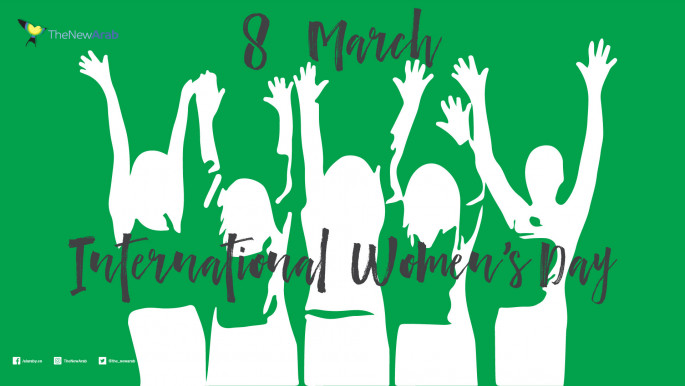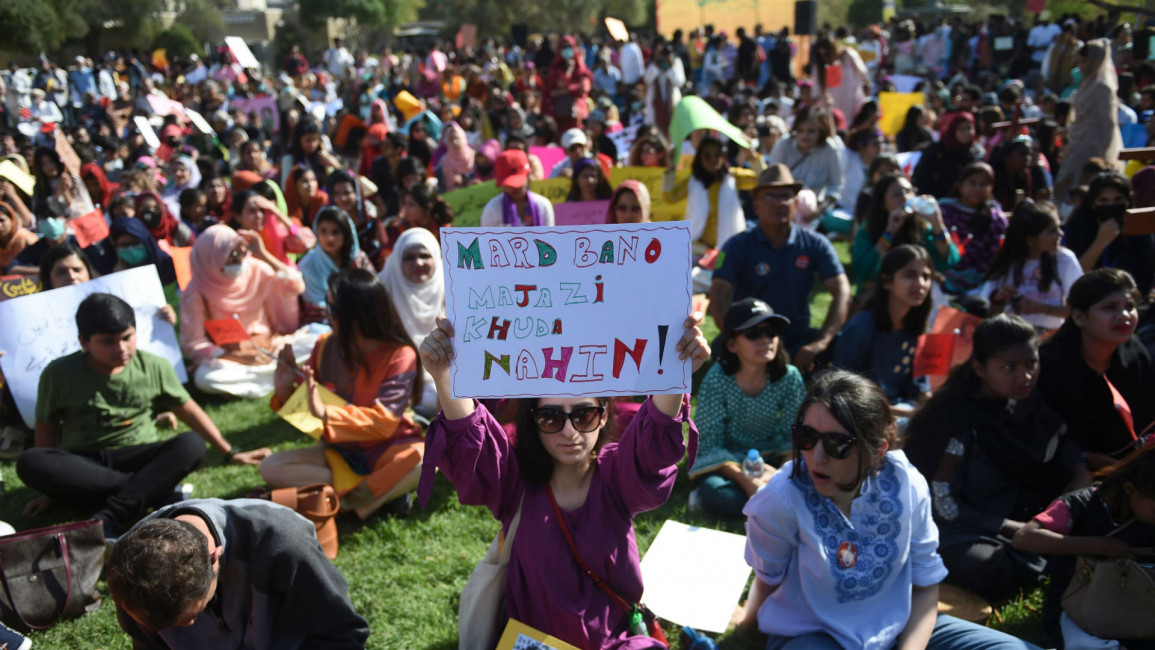Pakistan Women's Day marchers hit with stones, sticks
During a march in the capital, counter-protesters hurled sticks and stones at the women's rights demonstrators, causing some injuries and forcing a crowd of people to seek cover before the police intervened.
Tension had risen in Islamabad when about 1,000 women and men gathered to call for greater reproductive and other rights. They carried signs including "Be a Man Support Women", and "Let's Work For a Day Where Women Walking in the Streets Feel Safe".
The march ended at a park alongside a separate "anti-feminist" Islamist rally, where women's faces were veiled and one large sign read: "We Claim That Only Islam Gives Rights to Women".
The duelling protests were separated by a line of police and a flimsy barrier.
Amnesty South Asia called on Pakistani authorities to hold accountable those who attacked the women's rights marchers.
"The horrific attack on the #AuratMarch, which includes stones being hurled at peaceful protesters, represents the very violence women are protesting against today", Amnesty tweeted.
Read also: Why women activists are taking gender-based violence into their own hands
Pakistan's Human Rights Minister Shireen Mazari, also in a tweet, said "local Administration is taking actions against those who attacked the peaceful protesters with stones, sticks etc violating the law".
This year's tensions follow last year's second annual Women's Day "Aurat (Women) march", which sparked a backlash including rape and death threats.
1,000 killings annually
The nationwide "Aurat march," from the Urdu word for women, also saw a group of women gather in the southern city of Sukkur near the Indus river. The waterway is where the bodies of women who have been slain in "honour" killings are sometimes dumped.
This year, anti-march campaigners filed unsuccessful court petitions to try to ban Sunday's events, and a religious political party warned it would stop the march at "all costs".
According to estimates, at least 1,000 women fall victim to honour killings in Pakistan each year.
Rights activists have long fought against the patriarchal notion of "honour".
In neighbouring Afghanistan, frequently rated one of the world's worst places to be a woman, a handful of people took to the streets to mark Women's Day.
University graduate Tahmina Ghoori said that while urban Afghan women have seen some progress since the end of Taliban rule in 2001, they still face many challenges due to "gender inequality and the misogynistic views in our society".
She was especially worried about the possibility of the insurgents returning to power on the back of a US-Taliban deal signed last month.
 |
| Click to read more of our special coverage for International Women's Day |



